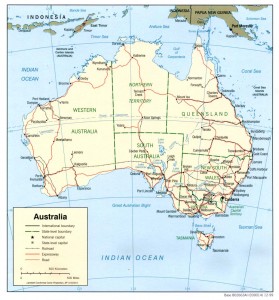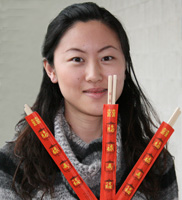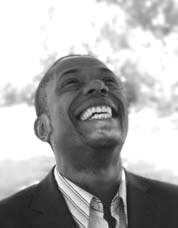
absolutely yours:
Thank you to Alberto and Collette for leaving comments on our blog. If you recall, in the last show we featured the Tapas investigation in Léon, northern Spain and this obviously made Alberto homesick as he is now studying outside of Spain and was in fact a student on a pilot course called Hands On Learning which is designed to help students raise their intercultural awareness when they go on foreign internships or semester exchanges. Collette, in Germany responded with an update of the Hands On learning course which is now firmly established. So thanks both of you for taking the trouble to visit and leaving your comments. And if you have a comment about what you hear, a suggestion about what we could do in the future or even a complaint then just go to the website and leave us a comment. Better still you could record a comment and email it to us and we’ll include it in the next show.
absolutely bushed:
Today we’ll be delving into the concept of mateship, a word which I hadn’t heard before but which almost made it into the Australian constitution in 1999 according to Wikipedia. Kym Dixon is a teacher at Brighton Secondary School in Adelaide, Australia and he visited Denmark recently on a study tour to find out how we integrate ICT in everyday teaching here. One of the institutions he visited was Grenaa Technical School where he gave a talk to the High School students. One of the questions after the talk was from a student who wants to visit Australia and wanted advice about where to go. ‘Make sure you visit the outback and don’t just go to the cities.’ was Kym’s advice.
absolutely cultural:
March is the time for the Intercultural Management Institute conference in Washington on March 12 and 13. This year marks the tenth anniversary of the conference and it is set to be rather special. Looking at the program if I were able to go I’d definitely want to attend the ‘Making it Stick’ session about presenting interactive learning to a cross-cultural audience. I am also always attracted to the simulation exercises such as another one involving the unidentifiable Asian, Mr Kahn. Then there are sessions on the use of film in cross-cultural training and the intercultural aspects of medical tourism. In previous years we have tried to give you a flavor of the conference in one or two follow up podcasts and I hope that we will be able to do this again this year as long as we can find somebody able to wield a recorder close enough to the speakers.
absolutely delicious?:
Back in Australia, or rather with Kym Dixon in Denmark, we went through a ritual common to many intercultural travelers, that of establishing exactly what is on the plate.
The next show will be coming to you on 20 February from Dr. Laurent Borgmann in Germany.
So long…stay tuned!
The host of this show is: Anne Fox
Editor: Jan Warnecke









